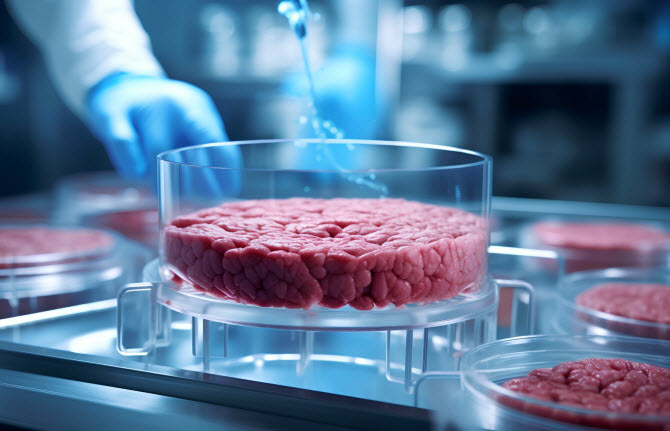
In Florida, a significant legislative move unfolded, aiming to restrict the sale of lab-made meat while preserving avenues for scientific exploration in this rapidly evolving field.
The pushback against lab-made meat gained momentum in both chambers of the Legislature, setting the stage for a potential ban. However, lawmakers, cognizant of the importance of scientific advancement, tweaked the legislation to explicitly permit research into lab-cultivated meat.
The House Infrastructure Strategies Committee played a pivotal role, advancing the ban as part of a broader Agriculture Department legislative package (HB 1071). The narrow 12-10 vote underscored the contentious nature of the issue. Simultaneously, the Senate Rules Committee endorsed a companion bill (SB 1084) later that day.
These developments positioned both bills for imminent floor votes, with the possibility of Florida becoming the first state to enforce a comprehensive ban on lab-made meat.
Representative Daniel Alvarez, a Tampa Republican, staunchly defended the motion to prohibit the sale of lab-grown meat, emphasizing the need for a secure and trustworthy marketplace. While acknowledging the temporary nature of the ban, Alvarez argued that it offered a buffer period of at least five years, allowing lawmakers to reassess the situation.
Critics, however, contended that the legislation would stifle the growth of the biotech industry in Florida. Even within the committee, dissenting voices emerged, including from Representative Jim Mooney, an Islamorada Republican, who questioned the need to raise alarms about domestically cultivated meat when international imports already fill American plates.
Traditional agriculture, notably the Florida Cattlemen’s Association, rallied behind the legislation. In contrast, investors, researchers, and entrepreneurs argued against an outright ban, cautioning against hindering technological progress.
The North American Meat Institute, a prominent trade association for meatpackers, expressed reservations in a letter to Governor Ron DeSantis and legislative leaders. Critics interpreted the letter as a warning about the potential threat cellular agriculture posed to conventional farming.
Despite the approval of lab-made meat consumption by the U.S. Department of Agriculture, Senator Jay Collins, a Tampa Republican, advocated for a more cautious approach in Florida. He emphasized the need for additional testing and safety data before permitting the sale of lab-cultivated meat, acknowledging that the ban might not be perpetual.
Presently, only two restaurants in the country offer lab-cultivated meat, focusing on white meats in San Francisco and Washington. However, ongoing research at various institutions in Florida, including the University of Florida, University of Miami, Mote Marine Laboratory in Sarasota, and NASA facilities in Cape Canaveral, underscores the dynamic nature of this emerging industry.
Recognizing the importance of research, sponsors in both chambers amended the bills to allow for continued exploration in the cultivation of meat. This shift was welcomed by Senate Democrats, who, while appreciating the concession, expressed concerns that a continued ban on meat sales might impede research efforts in the Free State of Florida.
RELATED ARTICLES
- Florida Doctors To Warn Patients They Could Suffer Heart Attack After Covid Jab
- Mike Tyson Spotted Crippled in a Wheelchair, holding Walking Stick at Miami Airport
- Florida Reaches Lowest Coronavirus Case Rate in the USA
- US Judge Seizes Custody of Child Because Mother Works at a Hospital and Might Infect It with COVID-19
- Polish farmers announce nationwide strike in protest against EU agricultural policies











